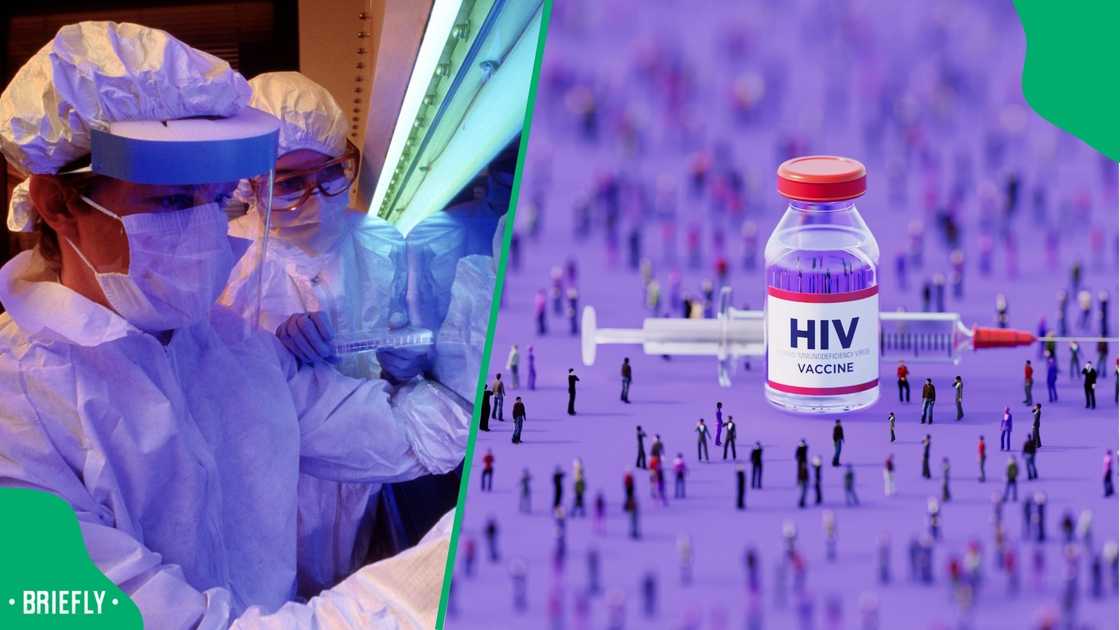South Africa’s HIV/AIDS Fight Faces Setback as US Cuts PEPFAR Funding
The Department of Health's annual report for 2023/2024 highlights significant advancements in South Africa's HIV/AIDS battle. Based on UNAIDS targets, 95% of people living with HIV were aware of their status, 79% were on antiretroviral therapy (ART), and 93% of those on ART achieved viral suppression at 12 months. Despite this progress, concerns have arisen due to funding cuts by the US, writes Medical Science expert Jayshri Rangasamy

Source: Getty Images
Jayshri Rangasamy leads Fortrea's Clinical Team, managing Clinical Operations Delivery. Her expertise spans non-infectious (cardiovascular, endocrinology, gastroenterology) and infectious diseases (tuberculosis, Ebola, COVID-19) plus oncology (lung cancer, hematologic malignancies). She holds MS and BS degrees in Pharmacology and Human Physiology from the University of Pretoria and promotes empathetic leadership. She is also a ballroom dancer and animal activist.
The 2024 results show 20.6 million people received ART, 2.3 million girls and young women accessed HIV prevention services, and 6.6 million orphans and vulnerable children received care. The US government has invested over $100 billion in the program, which aims to prevent HIV infections and support epidemic control in several countries.
A threat to HIV progress
UNAIDS estimates reveal a 52% reduction in new HIV infections in 2023 compared to 2010 in PEPFAR-supported countries, against a 39% global reduction. AIDS-related deaths decreased by 59% in PEPFAR-supported countries, compared to 51% globally. Locally, PEPFAR helped expand PrEP programs, mobile health initiatives, ART coverage, and funded training for health workers. Health Minister Aaron Motsoaledi confirmed PEPFAR supplied 51% of districts.
PAY ATTENTION: Briefly News is now on YouTube! Check out our interviews on Briefly TV Life now!
Without PEPFAR funding, over 222,000 South Africans living with HIV, including 7,445 children under 15, face disruptions in ART supplies. Service disruptions will impact programs like Ritshidze, designed by people living with HIV to hold the government and aid agencies accountable. UNAIDS estimates 4,280 NGOs and 15,374 HIV response staff will be affected.
The impact of funding cuts
While efforts continue to meet the demands of HIV care and essential services, there is an inherent risk of being unable to adequately address the impact of funding cuts. According to National HIV Estimates, a complete halt to PEPFAR funding could result in an increase of 30,000 to 64,000 new HIV infections and 600 to 1,200 additional AIDS-related deaths by 2028.
Although PEPFAR can resume under a limited waiver from US Secretary of State Rubio, not all activities will continue. In response, the National Department of Health released a circular on February 11, 2025, outlining contingency measures to maintain uninterrupted HIV services.
These measures include redeploying DoH staff, offering extended ART scripts, prioritizing enrolments at pick-up points, and continuing critical outreach services to key populations. These efforts aim to reduce clinic visits and alleviate the burden on health facilities, building on emergency measures implemented during the COVID-19 pandemic, including strengthened telemedicine and digital health platforms.

Source: Getty Images
Addressing the challenges
As we move forward, it is imperative that we closely monitor the situation to gain a comprehensive understanding of the true impact that the funding cuts will have on our HIV care and essential services. By keeping a vigilant eye on the evolving circumstances, we can better adapt our strategies to address any challenges that arise from these policy changes. Staying informed about forthcoming decisions by the US government is crucial to anticipate and mitigate potential disruptions.
Acting swiftly and decisively as new developments unfold will be essential in minimizing negative consequences and ensuring our efforts remain effective. It is our responsibility to adjust our approaches as we learn more about this dynamic landscape, prioritizing the well-being of those affected by these changes and maintaining the progress we've made in the fight against HIV/AIDS. By doing so, we will be better equipped to respond to emerging needs and continue providing the necessary support and care to our communities.
Source: Briefly News

Justin Williams (Editorial Assistant) Justin Williams joined Briefly News in 2024. He is currently the Opinion Editor and a Current Affairs Writer. He completed his Bachelor of Arts (BA) degree in Film & Multimedia Production and English Literary Studies from the University of Cape Town in 2024. Justin is a former writer and chief editor at Right for Education Africa: South African chapter. Contact Justin at justin.williams@briefly.co.za

Jayshri Rangasamy (Medical Scientist - Pharmacologist - Clinical Team Lead) Jayshri Rangasamy, Fortrea's Clinical Operations Delivery Leader, oversees the company's Clinical Team. She has extensive experience in both infectious diseases (tuberculosis, Ebola, COVID-19) and non-infectious diseases (cardiovascular, endocrinology, and gastroenterology), as well as oncology (lung cancer, hematologic malignancies). Rangasamy, who holds a MS and BS in Pharmacology and Human Physiology from the University of Pretoria, is an advocate for empathetic leadership. She's also a certified Latin and ballroom dancer.



